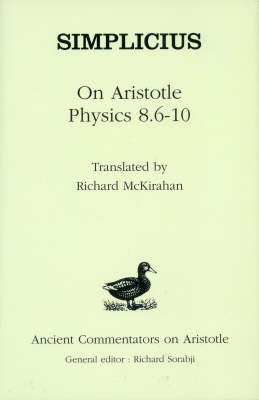Aristotle's "Physics" is about the causes of motion and culminates in a proof that God is needed as the ultimate cause of motion. Aristotle argues that things in motion need to be moved by something other than themselves - he rejects Plato's self-movers. On pain of regress, there must be an unmoved mover. If this unmoved mover is to cause motion eternally, it needs infinite power. It cannot, then, be a body, since bodies, being of finite size, cannot house infinite power. The unmoved mover is therefore an incorporeal God. Simplicius reveals that his teacher, Ammonius, harmonised Aristotle with Plato to counter Christian charges of pagan disagreement, by making Aristotle's God a cause of beginningless movement, but of beginningless existence of the universe. Eternal existence, not less than eternal motion, calls for an infinite, and hence incorporeal, force. By an irony, this anti-Christian interpretation turned Aristotle's God from a thinker into a certain kind of Creator, and so helped to make Aristotle's God acceptable to St Thomas Aquinas in the thirteenth century. This text provides a translation of Simplicius' commentary on Aristotle's work.
- ISBN10 0715630393
- ISBN13 9780715630396
- Publish Date 26 July 2001
- Publish Status Transferred
- Publish Country GB
- Publisher Bloomsbury Publishing PLC
- Imprint Bristol Classical Press
- Format Hardcover
- Pages 240
- Language English
